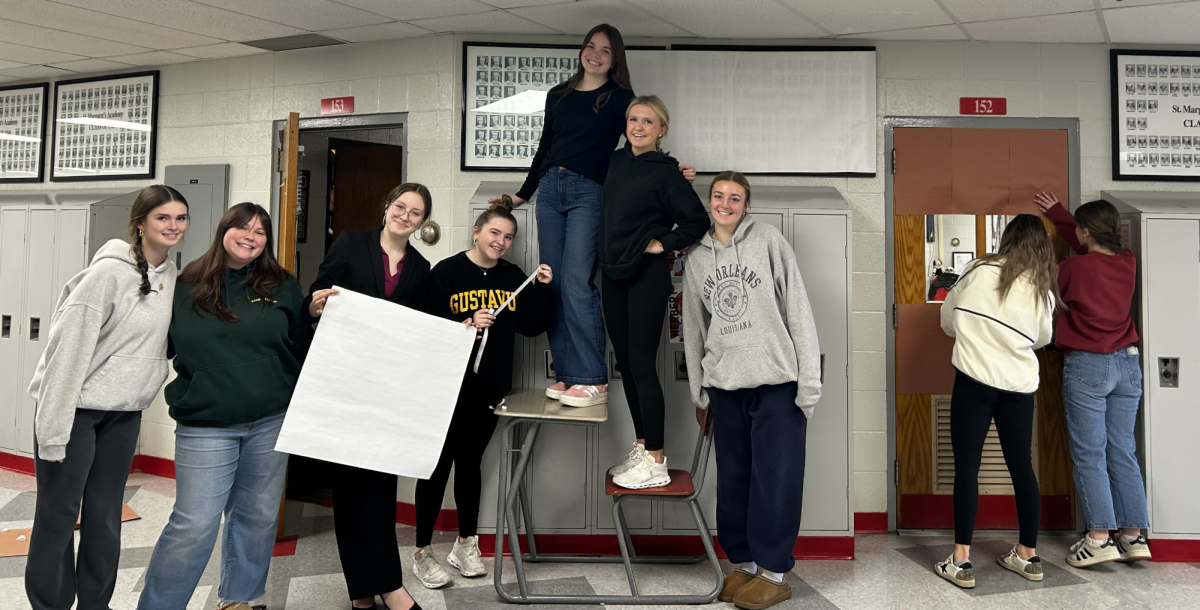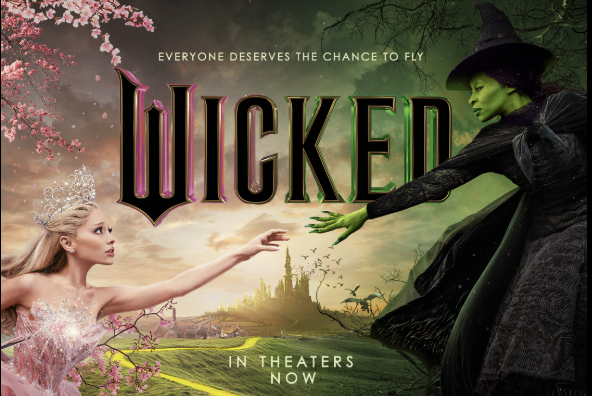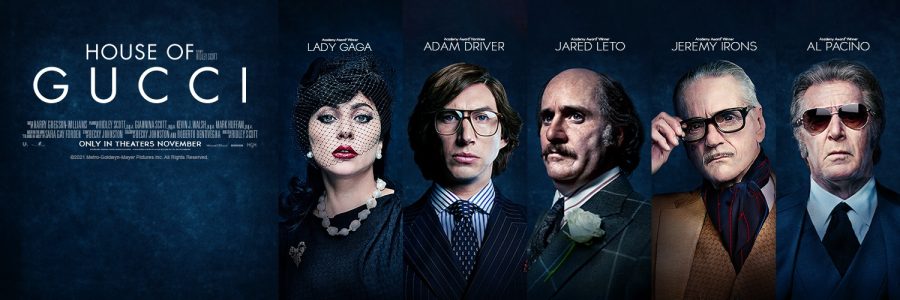“House of Gucci” encompasses both moments of greatness and missed opportunities
Official poster of the new film, House of Gucci, starring many acclaimed actors.
You may or may not have seen the flood of reviews coming in for the long-anticipated movie, “House of Gucci.” Starring Lady Gaga and Adam Driver, this film had its faults but was entertaining to say the least.
Noted as a biographical crime film, directed by Ridley Scott, “House of Gucci,” was based on the 2001 book “The House of Gucci: A Sensational Story of Murder, Madness, Glamor, and Greed.” I had little background information about the Gucci family walking into the movie theater, when it premiered on Wednesday, November 24th. Promotions for the film began releasing in March of this year, although even then I had no idea what the movie was about. Lady Gaga plays Patrizia Reggiani, an outsider who works for her father’s transportation business. The movie follows her marriage and the murder of her ex-husband, Maurizio Gucci, who is portrayed by Adam Driver.
From the very beginning, Patrizia is portrayed as a calculated and somewhat crazy person. She meets Maurizio at a party to which she wasn’t invited, and it was only when Maurizio said his last name, Gucci, that she became interested. She then waits outside places where she knows he’ll be, in hopes of “running into him.” They get married soon thereafter, despite Maurizio’s father, Rodolfo Gucci (Jeremy Irons), concerned with Patrizia’s motives. Years pass, and they have a child, although they have two in real life. Patrizia slowly becomes obsessed with the Gucci name and maintaining power in the family. She grows close with Maurizio’s uncle, Aldo Gucci (Al Pacino), and slowly starts to manipulate her husband into cutting off the family.
Upon seeing the trailer beforehand, I was led to believe that the film would be very suspenseful and centered around the murder. While the whole movie leads up to the murder of Maurizio Gucci, it was only a brief part of the film. Considering I watched the trailer before, I was expecting the intense parts to come earlier, which is why I thought it felt a little drawn out. This piece of the film also left out some information; in the movie, Maurizio is shot three times, but in real life he was shot four times. Whether this was a stylistic choice or just misinformation on the director’s part is unknown, but little details like that tend to add up.
The film was shot entirely in Italy, which added an element that I think helped captivate the authenticity of it. The majority of the movie was set in Milan, which can be considered the heart of the film, seeing as the previous Gucci headquarters were located there and the murder took place there. It’s also where Gucci and Reggiani got married, although in the film these scenes were shot in Rome. Apart from Milan and Rome, filming took place in Lake Como and Gressoney-Saint-Jean, which replaced St. Moritz where the couple owned four chalets. The decision to shoot the entire film in Italy was a good one; the stunning cinematography and scenery made it aesthetically pleasing.
Although it was filmed entirely in Italy, I do think “House of Gucci” should’ve been an Italian film, meaning it should’ve been spoken in the Italian language. Seeing as these real-life events occurred in Italy, in Italian, and the Gucci family is from Italian origins, it would just make more sense. I kept thinking when are they going to speak Italian? Rather the actors speak in English with an “Italian” accent. I’m curious to see what will happen when the movie opens in Italy. Will they have an Italian voiceover that doesn’t match up with the mouths or will there just be subtitles? I think the dismissal of the language element made me a little confused, but it was catered to an American audience with famous actors like Al Pacino, Adam Driver, and Lady Gaga. Unless you’re in the fashion world or have strong ties to the Gucci brand, most viewers didn’t know what occurred within the Gucci family in the 1980s in Milan, including myself. I’m sure there were many factors in choosing to market this movie towards an American audience, however, I think people would have been more receptive if it was an Italian film.
After watching the film, I did some research on the Gucci family and came to the conclusion that this movie didn’t represent the characters in the most accurate way. Jared Leto’s character, Paolo Gucci, was portrayed as somewhat of a lunatic, dubbed as a “crazed” performance by many. Tom Ford, former creative director of Gucci, said Paolo was certainly an eccentric character, but not to the extent that he was illustrated as. The biggest factor I’ve noticed is that the film somewhat streamlines the story, and although this happens in many “based on a true story” movies, many people were upset that such an important event in the fashion industry was made to be something it wasn’t.










































